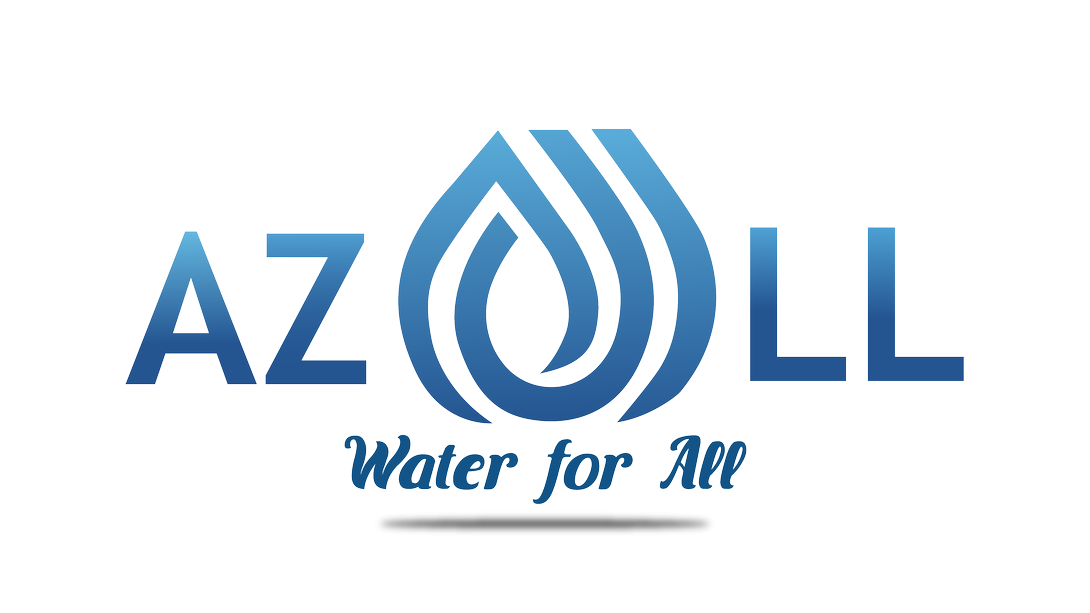Frequently Asked Questions
Azoll makes revenue from selling the space on our aluminum packaging to firms wishing to advertise with us. The firm, we’ll call them our advertising partner, pays for the advertising space and included is the cost for water. This allows the water to be free for consumers!
Azoll is currently in the process of doing a state-by-state rollout starting in California. Our goal is for everyone to have access to our clean and sustainable water product. If you’d like to find out more, reach out to our team via the chat option.
Azoll is always interested in entering new distribution partnerships. If you’re within a region we currently operate in, reach out to our team via the chat option and we’ll be happy to put you in touch with our distribution team. If we’re not operating in that area yet, keep your eyes peeled, we’ll be there soon!
Azoll uses aluminum because they’re 100% recyclable and much more sustainable than plastic bottles. One of our goals is to create more sustainable earth!
We’re thrilled you are interested in helping us change the world! Reach out to our team via the chat option on this page and we’ll put you in contact with a member of our sales team.
For each can that is sold to advertisers, Azoll takes a portion of the revenue and donates it directly to our sister company, the Azoll Foundation. The Azoll foundation is a non-profit organization that works directly with other non-profit organizations to build clean water wells in underdeveloped countries. We also use a portion of the revenue from our NFT sales to go towards the cause as well.
When you scan each QR code, you’ll enter the digital world of Azoll. You’ll see the advertiser who paid for your water, the direct contribution you’re helping make to finding clean water solutions, and you’ll have access to our digital art gallery where you can view our NFTs.
NFT stands for Non-Fungible Token. It is a unique piece of art, music, photos, drawings, anything really, that cannot be replaced by something else. Its data is recorded on the Ethereum blockchain and will live there forever, which gives it value and provides proof of ownership. It is similar to a one-of-a-kind trading card, only digital. Azoll sells these unique NFTs along with our canning advertisement space to help create more sustainable water solutions for the world.
At a very high level, most NFTs are part of the Ethereum blockchain. Ethereum is a cryptocurrency, like bitcoin or dogecoin, but its blockchain also supports these NFTs, which store extra information that makes them work differently from, say, an ETH coin.
The Azoll NFTs work from the donations made from each can. The target price of each unique 1/1 NFT represents physical water well somewhere in the world. The donation from each advertising sale purchased by an advertising partner goes to set the floor price (minimum bid) of each NFT. This minimum bid is set at half the cost to build a well. The NFT is then auctioned off and once the floor price is reached, the auction begins. The revenue brought in from both the can sales and the NFT sale will go to build a well somewhere in the world.
Our NFTs are unique works of art, but they also represent a physical object in the real world. By keeping this asset in your digital wallet, you are showing that you are not only an art collector but also a philanthropist. It is a digital representation of the change that you made in the world. Along with the purchase of the NFT, you also gain the naming rights to the well and will be continually updated on the community progress made by your contribution. Pretty cool, huh?
Decentralized water is the idea that everyone should have access to clean and sustainable water solutions no matter your status or location. Currently, water is centralized, and controlled by single sources (which is why we have to pay for it and it is limited in certain areas). By decentralizing water, everyone will have access to clean water solutions for free. Consumers will be able to pick up our products in stores, and underdeveloped areas will be able to access our wells. We know that water is the most basic necessity of life and feel that access to it should not be limited. This is decentralized water!
